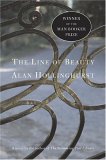Summary | Excerpt | Reviews | Readalikes | Genres & Themes | Author Bio

The substance of the original ad ("Black guy, late 20s, v. good-looking, interests cinema, music, politics, seeks intelligent like-minded guy 18-40") was half-obliterated by Nick's later dreamings and Catherine's premonitions, which dragged Leo further and further off into her own territory of uncomfortable sex and bad faith. At times Nick had to reassure himself that he and not Catherine was the one who had a date with him. Hurrying home that evening he glanced through the requirements again. He couldn't help feeling he was going to fall short of his new lover's standards. He was intelligent, he had just got a first-class degree from Oxford University, but people meant such different things by music and politics. Well, knowing the Feddens would give him an angle. He found the tolerant age range comforting. He was only twenty, but he could have been twice that age and Leo would still have wanted him. In fact he might be going to stay with Leo for twenty years: that seemed to be the advertisement's coded promise.
The second post was still scattered across the hall, and there was no sound from upstairs; but he felt, from a charge in the air, that he wasn't alone. He gathered up the letters and found that Gerald had sent him a postcard. It was a black-and-white picture of a Romanesque doorway, with flanking saints and a lively Last Judgement in the tympanum: "Eglise de Podier, XII siècle". Gerald had large, impatient handwriting, in which most of the letters were missed out, and perhaps unnegotiable with his very thick nib. The author of Graphology might have diagnosed an ego as big as Leo's, but the main impression was of almost evasive haste. He had a sign-off that could have been "Love" but could have been "Yours" or even, absurdly, "Hello" - so you didn't quite know where you stood with him. As far as Nick could make out they were enjoying themselves. He was pleased to have the card, but it cast a slight shadow, by reminding him that the August idyll would soon be over.
He went into the kitchen, where Catherine, it must be, had made a mess since Elena's early morning visit. The cutlery drawers tilted heavily open. There was a vague air of intrusion. He darted into the dining room, but the boulle clock ticked on in its place on the mantelpiece, and the silver safe was locked. The brown Lenbach portraits of Rachel's forebears stared as sternly as Leo himself. Upstairs in the drawing room the windows were open on to the curving rear balcony, but the blue lagoon of the Guardi still gleamed and flashed above the mantelpiece. A low cupboard in the break-fronted bookcase stood open. Funny how mere living in a house like this could have the look of a burglary. He peered down from the balcony, but there was no one in the garden. He went more calmly up the further three flights of stairs, and when his nerves about Leo took hold of him again they were almost a relief from the grown-up anxieties of guarding the house. He saw Catherine moving in her room, and called out to her. A breeze had slammed his door and his own room was stifling, the books and papers on the table by the window curled up and hot. He said, "I thought we'd had a break-in for a moment" - but the fear of it had already gone.
He picked out two possible shirts on their hangers, and was looking in the mirror when Catherine came in and stood behind him. He sensed at once her desire to touch him and her inability to do so. She didn't meet his eye in the mirror, she simply looked at him, at his shoulder, as though he would know what to do. She had the bewildered slight smile of someone only just coping with pain. Nick smiled back more broadly, to make a few seconds of delay, as if it might still be one of their jokes. "Blue or white?" he said, covering himself with the shirts again, like two wings. Then he dropped his arms and the shirts trailed on the floor. He saw night falling already and Leo on his racing bike racing home to Willesden. "Not too good?" he said.
From The Line of Beauty by Alan Hollinghurst, pages 3-17.Copyright 2004 by Alan Hollinghurst. All rights reserved. No part of this book may be used or reproduced in any manner whatsoever without written permission from the publisher, except in the case of brief quotations embodied in critical articles or reviews. Reproduced by permission of Bloomsbury Publishing.
Your guide toexceptional books
BookBrowse seeks out and recommends the best in contemporary fiction and nonfiction—books that not only engage and entertain but also deepen our understanding of ourselves and the world around us.